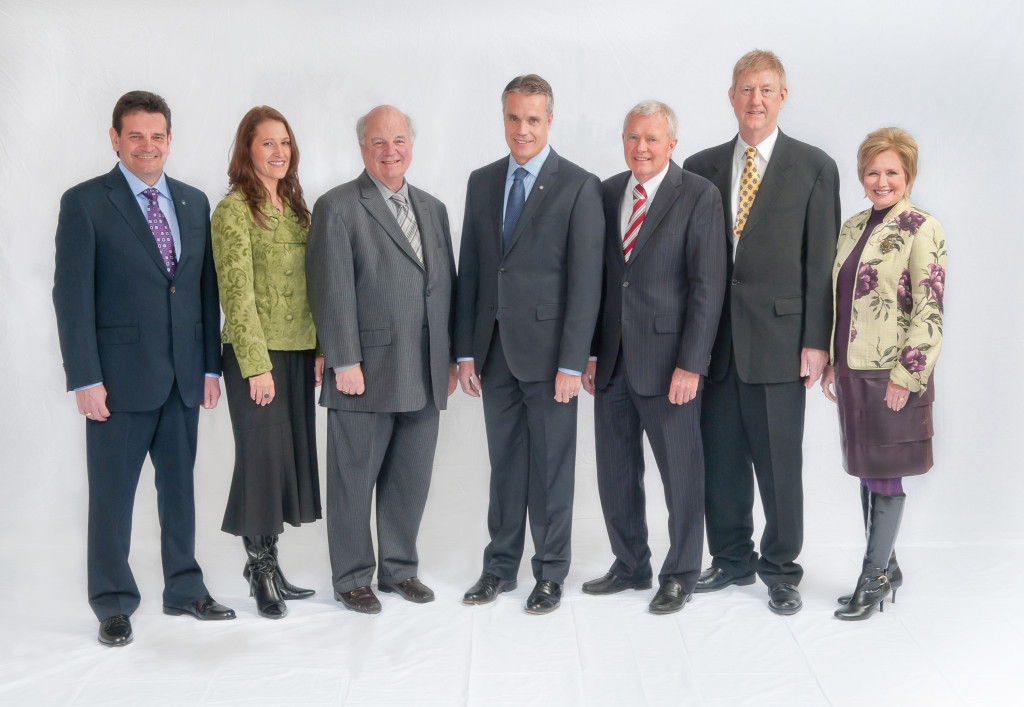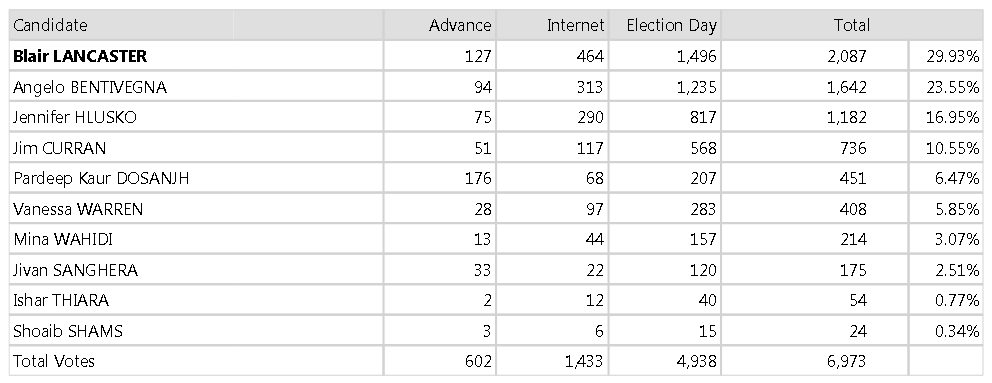 By Pepper Parr
By Pepper Parr
April 7, 2016
BURLINGTON, ON
Yesterday, the Ontario government introduced legislation that will allow any municipality in Ontario to use ranked ballots in the 2018 election.
“Ranked ballots give more power to voters. They reduce negative campaigns, eliminate strategic voting, increase diversity on the ballot, increase turnover, and give us
more accurate results. In other words, this historic reform will make our local elections more fair and friendly” says Dave Meslin, Creative Director of Unlock Democracy.
123Ontario is a network of volunteer-run campaigns across on Ontario, pushing for municipal ranked ballots. Currently, we have active campaigns in Toronto, Ottawa, London, Guelph, Windsor, Whitby and Hamilton.
“This legislation is a huge step forward for democracy in Ontario” said Katherine Skene, Co-Chair of Toronto’s RaBIT campaign. “We’re hopeful
that Toronto sees this as a renewed opportunity to improve our own voting system so our government better represents the diversity of our city.”

Will this council vote to introduce ranked balloting to the 2018 municipal election? Self interest rather than a true belief in the democratic process will determine what they do.
Once the legislation is adopted by the provincial parliament, municipalities will have the choice of using ranked ballots either in single member districts. In single-member districts, the person with the most votes wins.
“Democratic renewal has witnessed a tremendous surge recently. Alongside electronic voting and the regional adjustment of council seats, ranked ballots are the next logical step.” said Nick Boileau, Chair of 123whitby.
Just because the provincial government legislation allows a municipality to introduce ranked ballots doesn’t mean it will be implemented automatically. Each municipality will have to vote on the matter and before they do that – there will probably have to be a staff report recommending the municipality convert from the current system to one of ranking the ballots cast.
While it looks as if the legislation will sail through the legislative process smoothly – don’t expect the municipalities to rush in to go ranked. Concerned citizens are going to have to form their own advocacy groups and pressure their elected officials to make the change.
 Those in Burlington like what they have now and aren’t likely to make a change. Burlington re-elected every member of the current council – there was just the one Councillor who might have been impacted by a ranked counting of the ballots. Blair Lancaster won with 2087, less than 30% of the votes. .
Those in Burlington like what they have now and aren’t likely to make a change. Burlington re-elected every member of the current council – there was just the one Councillor who might have been impacted by a ranked counting of the ballots. Blair Lancaster won with 2087, less than 30% of the votes. .
Ontario has 444 municipalities – with less than ten having local committees that are advocating or a change in the way members of city council are elected.
The Gazette will report in depth on this opportunity to strengthen the democratic process in Burlington.



















The first past the post is not a perfect system, but neither is forcing people to hold their nose and place an X beside a person or party they do not support. To me that’s a survey not a vote. If this should pass I can see people playing games by strategically placing their second X beside the least desired option. And then there is the situation where we only have two candidates. In that instance you get the same result. The ranked ballot will ”force” you to vote for more than one person or party, the old system ”allows” you to vote for the person or party you support. That’s democracy. My vote, leave it alone or at least put this to a referendum.
I suspect ranked balloting will only serve to favour the incumbent. If an upstart candidate is able to win the plurality vote, it will be natural that many people will follow the ‘name recognition’ principle and cast their 2nd favourite to the incumbent. This will be a particular problem in Municipal elections where it is hard enough for new candidates to upset incumbents, and now this will create an even bigger barrier to entry.